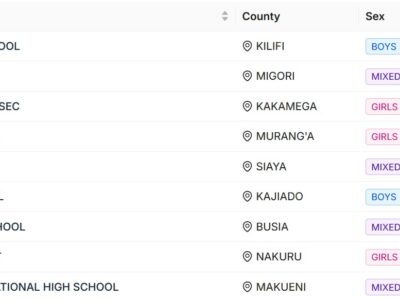A recent survey found that most Kenyans bet for fun rather than in pursuit of income. The gambling market is expanding thanks to online casinos. Most bettors see gambling more as a pastime than a major income source. This pattern shows how gambling has become more popular as a social activity than an income source.
The report also notes increasing Kenyan internet gambling engagement. The findings imply that gambling’s social and entertainment benefits exceed the prospect of significant wins. This is especially true in relation to sports and casino games, such as blackjack. This article provides a framework for understanding the state of gambling in Kenya and the primary motivation of Kenyan players.
Gambling Trends in Kenya
Gambling has risen in Kenya recently. Statista estimates its online casino market volume will be $55.65M in 2024. Betting on sports combines the thrill of watching sports with the opportunity to win funds. Casino gambling on games like blackjack has become commonplace and prevalent in land-based and online casinos. Lotteries and other betting activities also maintain high interest.
Demographics heavily influence gambling involvement in Kenya. However, while people of all ages like playing casino games, sports betting tends to attract younger males. However, there has been a marked increase in the number of women participating in sports wagering.
The same survey shows that Kenyan women are more likely to turn to third-party reviewing sites for access to casino bonuses, with kingcasinobonus.com being among the most noted preferences among respondents. Hence, 78% of Kenyan women like to read evaluations from industry analysts about casino bonuses and sites. Only 22% reported they are more inclined to find recommendations simply through Google.
Key Findings on Gambling Motivations
There are several reasons gambling practices keep increasing in Kenya. Here are the key drivers of gambling behavior in Kenya:
- Social Enjoyment
People gamble to socialize while enjoying themselves, especially at a sports event. There is a sense of community around gambling activities. A number of participants say they often get together with friends to wager. Social group betting has become a cultural phenomenon during big football competitions. These social outcomes are especially prevalent among sports bettors.
- Peer Influence and Social Pressure
Participants admit that their social circles impact their gambling habits. The study shows that peers have a substantial effect on social gambling activities. People between 21 and 35 keep gambling to stay in touch with friends. Some bet to avoid feeling left out of group activities. Hence, it highlights the vulnerability of this age group to peer pressure.
- Entertainment Value vs. Financial Returns
According to the study, gamblers value entertainment over money. Respondents average three hours of gaming every week. They consider it a pastime rather than a way of obtaining outcomes. People in the middle class tend to think this way. They limit their spending on gambling and view losses as entertainment costs rather than financial losses.
Socioeconomic Factors of Gambling
There are clear trends in gambling behavioral patterns across various social groups. Here are some socioeconomic factors associated with gambling:
Income Levels
The largest gambling group consists of middle-income earners. They are classified as individuals with a monthly salary between KES 50,000 and 100,000. Despite making up 40% of gamblers, those with lesser incomes prefer playing the national lottery.
Education and Gambling Behavior
The level of education affects people’s brains and their gambling behavior. Sports betting is popular among individuals with a bachelor’s degree or above. In contrast, those with secondary education or below tend toward chance-based games like a lottery.
Urban vs. Rural Gambling Patterns
Gambling habits in rural locations are very different from those in urban areas. Variation in internet accessibility and digital literacy is a major factor in this inequality. Urban gamblers spend twice as much on betting each week as rural gamblers.
Problem Gambling in Kenya
According to research, a number of Kenyans have the risk of developing problem gambling. Multiple variables cause harm or gambling addiction, including persistent peer pressure. Financial stress and mental illness raise gambling disorder risk.
The social effects of compulsive gambling in Kenya are significant. Among problem gamblers, anxiety, despair, and bankruptcy are more likely. Operators have made initiatives to promote responsible gambling. These problem gambling initiatives include self-exclusion and deposit limits. However, these interventions to help people may not work. Hence, responsible gambling measures should also be implemented by the Kenyan government.














